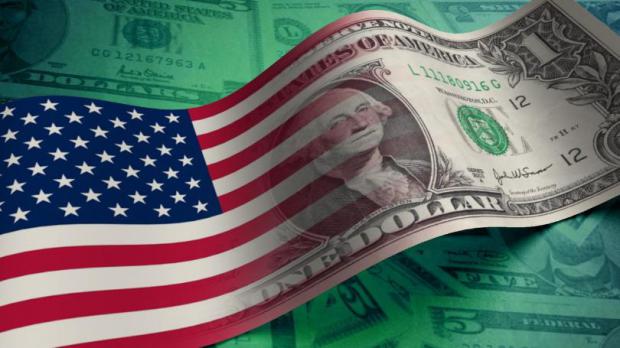
Breaking News
 The EU's Decision to Cancel 2035 Combustion Engine Ban Leaves Automakers at Odds
The EU's Decision to Cancel 2035 Combustion Engine Ban Leaves Automakers at Odds
 Rupee's freefall tells the real story about India's outlook
Rupee's freefall tells the real story about India's outlook
 Massie Introduces Bill to Get US Out of NATO
Massie Introduces Bill to Get US Out of NATO
 Somali Flag Raised Over Vermont School District
Somali Flag Raised Over Vermont School District
Top Tech News
 This tiny dev board is packed with features for ambitious makers
This tiny dev board is packed with features for ambitious makers
 Scientists Discover Gel to Regrow Tooth Enamel
Scientists Discover Gel to Regrow Tooth Enamel
 Vitamin C and Dandelion Root Killing Cancer Cells -- as Former CDC Director Calls for COVID-19...
Vitamin C and Dandelion Root Killing Cancer Cells -- as Former CDC Director Calls for COVID-19...
 Galactic Brain: US firm plans space-based data centers, power grid to challenge China
Galactic Brain: US firm plans space-based data centers, power grid to challenge China
 A microbial cleanup for glyphosate just earned a patent. Here's why that matters
A microbial cleanup for glyphosate just earned a patent. Here's why that matters
 Japan Breaks Internet Speed Record with 5 Million Times Faster Data Transfer
Japan Breaks Internet Speed Record with 5 Million Times Faster Data Transfer
 Advanced Propulsion Resources Part 1 of 2
Advanced Propulsion Resources Part 1 of 2
 PulsarFusion a forward-thinking UK aerospace company, is pushing the boundaries of space travel...
PulsarFusion a forward-thinking UK aerospace company, is pushing the boundaries of space travel...
 Dinky little laser box throws big-screen entertainment from inches away
Dinky little laser box throws big-screen entertainment from inches away
 'World's first' sodium-ion flashlight shines bright even at -40 ºF
'World's first' sodium-ion flashlight shines bright even at -40 ºF
The Economy Has Failed the American People, But It's Taboo To Say Why

The economy has failed the American people, but it's taboo to say why because that would undermine the entire power structure that so richly benefits the few at the expense of the many. The few have an extremely compelling motivation to obscure the "why" and to enforce the taboo on saying it aloud.
The economy has failed the American people because it's a two-tiered power structure that's essentially neofeudal, meaning it's an updated version of traditional feudal social orders. To understand this, we must start by understanding traditional feudalism.
In feudal societies, life is pretty good for the nobility in the castle on the hill. For the powerless peasants working the fields below to fund the nobility, life is less good, and so the peasantry is open to changing this asymmetric power structure to a fairer balance.
To maintain its grip on power, the nobility must promote a social zeitgeist in which the peasantry's powerlessness is the natural order of things and therefore resisting this structure is not only a sin, it's futile.
One key feature of feudal social orders is the impermeability of the line between nobility and peasantry, what we call social mobility. Nobility and serfdom were established at birth, never to change. Serfs were bound to the land of their birth and could not leave; their servitude was for life.
This was a regression from the Roman Empire, which allowed ownership of land by free citizens, and relatively free movement of citizens throughout the vast empire.
Wedged between these hereditary classes were the merchants and craft workers whose services were essential to the nobility's maintenance of power. As Fernand Braudel documented in his massive three-volume series Civilization and Capitalism, 15th-18th Century (Vol. 1: The Structure of Everyday Life, Vol. 2: The Wheels of Commerce, Vol. 3: The Perspective of the World), the story of capitalism is the steady expansion of commerce and production eventually generated a class with sufficient power to unseat the feudal power structure and replace it with various flavors of capitalism.
Another key feature of feudalism is the union of state and ownership of capital: there is only one nobility. The nobility owned the productive capital–mostly land, but also toll roads and other assets–and they were also the government: each fiefdom ruled its peasantry and controlled whatever judiciary was available.



